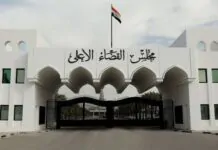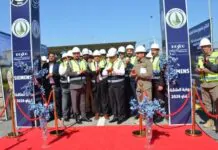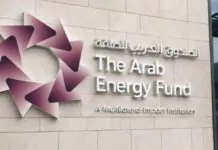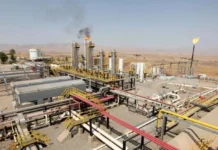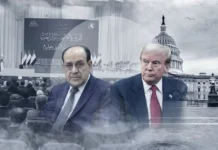Tishwash: Do you know how much gold Iraq possesses? Find out where Arab countries rank!
The World Gold Council announced on Monday that Iraq and nine other Arab countries collectively possess approximately 1,498 tons of gold reserves, according to its latest data issued for the current month of November.
Five Arab countries hold the largest share
The council explained that the top five Arab countries, namely: Saudi Arabia, Lebanon, Algeria, Iraq and Libya, collectively possess 1,101 tons of gold , which constitutes the largest proportion of Arab gold reserves.
As for the rest of the Arab countries included in the list, which include Egypt, Qatar, Kuwait and Jordan, their combined reserves amount to 397 tons.
Iraq strengthens its reserves and maintains its global ranking
According to the report, Iraq increased its gold reserves to 171.9 tons during August, after it had been 162.7 tons in July, which enabled it to maintain its 29th position globally among the 100 countries included in the ranking of the world’s largest gold reserves. link
Tishwash: Urgent | President of the Republic: Holding legislative elections confirms our commitment to constitutional and democratic political life.
President Abdul Latif Jamal Rashid affirmed that holding the sixth legislative elections represents a new and important stage in Iraq’s political and democratic path, noting that this constitutional entitlement embodies the state’s commitment to constitutional and democratic political life.
In a statement issued on the occasion of the elections, the President said, “Our people have proven that they are worthy of continuing their civilizational achievements, and have presented a distinguished democratic model of coexistence among its various components,” calling for “active and broad participation in the electoral process as the best way to correct mistakes, address shortcomings, and develop the political system.”
He added that “electing is a national right and duty, and the Presidency has worked to support all parties concerned with implementing this national entitlement to ensure its integrity and transparency,” stressing “the importance of voters being realistic, honest and trustworthy in choosing the candidates who will represent them in the House of Representatives and be the watchful eye protecting their rights and interests.”
The President concluded by affirming that “the Presidency will continue to support the upcoming House of Representatives in enacting important laws that activate the articles of the Constitution and complete the institutional building of the state on solid foundations of justice and citizenship.” link
************
Tishwash: Iraq enters the era of digital services… How has electronic payment changed the lives of citizens?
Prepared by : Mohammed Hussein Al-Abousi – President of the Arab Youth Organization
Cash transactions are no longer the preferred method of transportation in Iraq, as digital services, particularly electronic payments , have begun to rapidly transform citizens’ daily lives. With the expansion of e-wallet networks and digital banks, Iraq is effectively entering the era of the digital economy , a move considered a historic shift in the country’s economic and social structure.
From salaries to bills, everything has gone digital.
Data from the Central Bank of Iraq indicates a significant increase in the number of e-wallet users over the past two years, with companies like Zain Cash , Asiacell Money , and KeyCard expanding their electronic payment and transfer services across all governorates. Employees can now receive their salaries through digital applications and pay their electricity and internet bills without needing to visit government offices, saving time and effort and reducing traditional cash transactions that previously burdened citizens.
A national project to change financial culture
In this context, the Arab Youth Organization implemented a year-long national project to promote a culture of electronic payments . This included organizing training workshops in ten Iraqi governorates , with the participation of hundreds of young people from civil society organizations. The project aimed to enhance financial literacy and encourage citizens to use digital tools in their daily lives, thus contributing to the creation of a new generation better equipped to engage with modern financial technology.
Electronic payment reduces corruption and increases transparency
Economists believe that the shift towards electronic payments not only facilitates transactions but is also a crucial step in combating corruption and reducing the informal economy. Tracking financial transactions electronically limits financial manipulation and strengthens trust between citizens and government institutions.
Furthermore, the digitization of financial transactions opens the door to investment in financial technology (FinTech) and encourages banks to adopt innovative solutions that keep pace with global developments.
Broad social impact
The effects of this transformation were not limited to the economy alone, but were also reflected in society. With the increasing use of electronic payments among young people, women, and students, a new culture emerged based on financial independence and personal budgeting, in addition to creating job opportunities in the fields of technology, customer service, and digital marketing.
Basrawi website opinion
Basrawi.com believes that Iraq is currently experiencing the beginnings of a true digital era, and that the widespread adoption of electronic payments among citizens paves the way for building a comprehensive knowledge-based economy .
It emphasizes that the continuation of this transformation requires governmental and legislative support on one hand, and the ongoing initiatives of civil society, such as the Arab Youth Organization project, on the other, to ensure that digital services reach all segments of society. link


